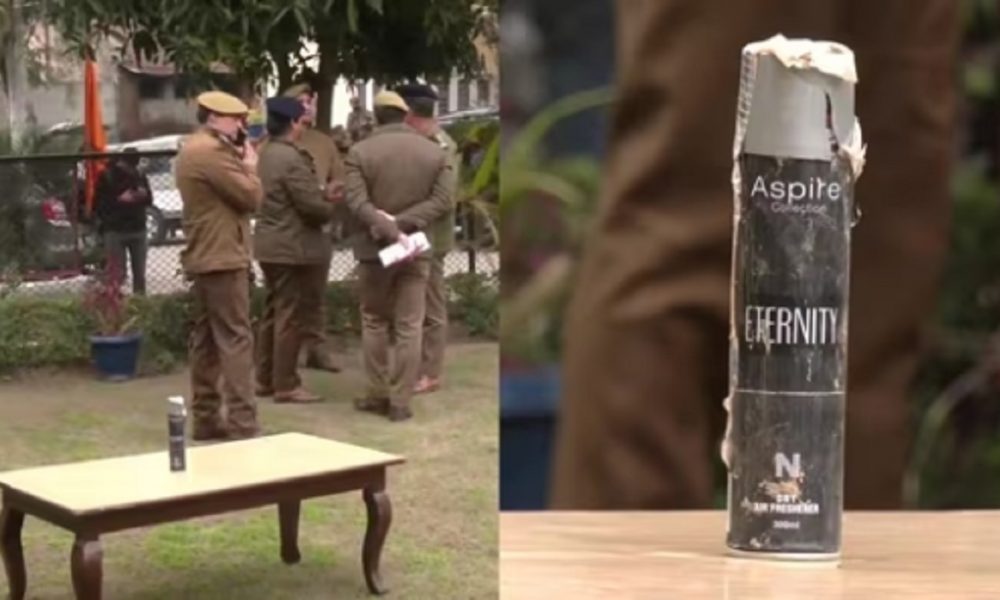
New Delhi: Jammu & Kashmir Police on Thursday claimed to have received a breakthrough in the Jammu’s Narwal twin blasts investigation, saying that it has nabbed a government teacher as one of the accused and also recovered ‘perfume IED’, the first of its kind weapon to unleash terror in the valley.
Addressing the media, Jammu and Kashmir DGP Dilbag Singh said that J&K police have arrested one government employee named Arif, in connection with twin blasts in Jammu’s Narwal.
Arif, a resident of Reasi district, is employed as a government teacher and is said to be have connections with terror groups across the border. The DGP said that Arif was part of a module to conduct terror attacks in valley, aimed at inflicting maximum damage and he was also receiving funding for the same.
“Arif is a government employee, and works as a teacher since 2010. He was first employed under the ReT scheme in 2010 and then became a regular teacher in 2016,” DGP Singh said.
Visuals of perfume IED which was recovered from the terrorist, Arif.
This is the first time any perfume IED has been recovered by Jammu Police. pic.twitter.com/COynZ9mMsD
— ANI (@ANI) February 2, 2023
“The IEDs were timed in such a way to inflict maximum casualties,” J&K DGP said and added that police saved several lives by following the standard procedure.
Perfume IED, 1st of its kind terror weapon
The police have also recovered ‘perfume IED’, a first of kind explosive from his custody.
The police informed that at least 3 IEDs were delivered to him via drones in December, last year. Out of three, 2 were used in executing Narwal blasts, while the third one was with him.
Arif had developed links with a Lashkar-e-Taiba terrorist named Kasim and together along with their handlers in Pakistan, they carried out the twin blasts, including Shastri Nagar IED blast and Katra bus attack.
Two back-to-back explosions had rocked Jammu’s Narwal area, about 5km from Sunjwan army camp on January 21. These blasts were later found to be IED explosions,




